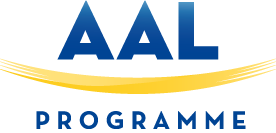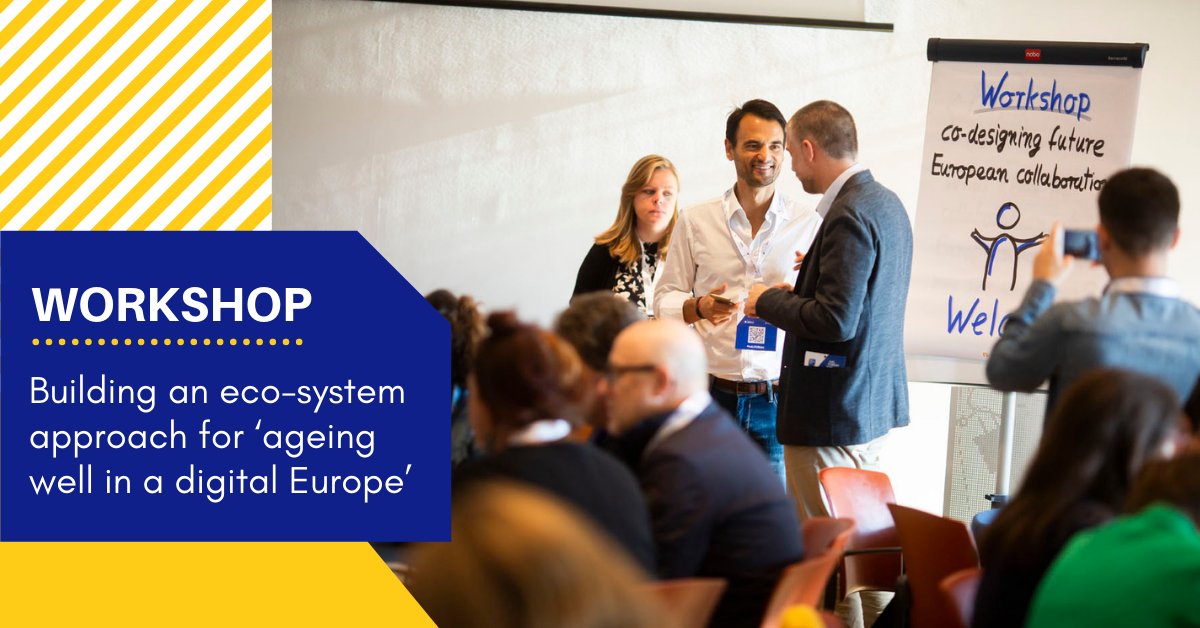Workshop 3
Building an eco-system approach for ‘ageing well in a digital Europe’
Theme 2
Tuesday 24 September 9:00-10:30
Room: Nortvegia
Following a first workshop at the 2018 AAL Forum in Bilbao about future European collaboration on supporting ‘ageing well in a digital Europe’ a follow-up with AAL stakeholders is planned during the 2019 Forum in Aarhus.
While there are increasing number of technical solutions available in the growing ageing market coupled with a slow shift of consciousness about the opportunities of ageing, there are still numerous challenges to tackle. To provide digital-based solutions suitable for everyday use, deeper and broader forms of cooperation between the different actors will be required. There is no magic cooperation formula yet for business, research and policy-makers to work together with civil society and the concerned citizens (older people and the people supporting them like family, friends, neighbourhood or professional carers). Yet without it, the shift of mindsets, the development of widened consciousness about demographic change and the required accompanying systems, processes and roles will remain unachieved.
AAL’s current work on preparing a future European partnership programme aims to introduce an ecosystem learning & building approach for ageing well in an increasingly digital world. This eco-system building approach will be based on a deep sensing of the most critical issues emerging from AAL stakeholders, in order to be able to prototype future service offerings to be tested and upscaled. Achieving tangible impact for European citizens is the key driver for this bottom-up network & collaboration process.
Objectives
Building an eco-system for ageing well at European level requires the development of a prototypical process, in order to mobilize all concerned people & organisations, in particular the concerned users, to invite them to participate and to take co-ownership of specific and jointly developed solutions.
Concrete, well-defined ageing challenge & opportunity missions, such as the everyday use of digital based solutions for supporting the work of informal carers for example, will form the basis for such a targeted co-creation prototype.
- As a first operational goal, this workshop aims to provide key building blocks/processes for building an ageing well eco-system prototype, which everyone can refer to. Concrete user cases from concerned citizens or existing ageing networks (home, community, care and work environment) will be brought up, in order to illustrate current challenges, which require a new system approach. This will help to think of describing possible future targeted service offerings. The use of specific personal/local experience and knowledge in the workshop will be vital to overcome silo-thinking and to foster the exchange between the concerned likely future eco-system partners.
- The second and most important goal is to mobilise the participants of the workshop to take further action and continue this eco-system prototype development process. AAL is ready to actively support this process with its available instruments, such as the support actions for further workshop and prototype process development and the call instruments for proof of concept testing and service prototype development.
Workshop method
In order to allow the whole group to participate in the the discussions and to shape the outcomes of the workshop the ‘open fishbowl’ conversation approach will be used. For that purpose, the middle cercle of the room will be filled with a maximum of five chairs:
- 2 for concerned citizens: young and old person
- 2 for eco-system experienced people: hospital/care home environment, community/home environment or workplace environment
- 1 empty chair to be filled by people from the audience
Next to this conversation style, emphasis will also be put on the different roles, participants can take during this workshop, such as:
- Describe a specific problem/opportunity, e.g. from the perspective of a hospital, a caregiver, a concerned family member or a concerned older person
- Provide constructive criticism or questions on current system
- Provide real-life information
- Summarise presented problem/opportunity
- Provide ideas on a potential new service offering or systemic approach
- Look beyond this workshop to keep the momentum going
While an eco-system unites different actors and interests, the essence is about sharing concerns and aspirations, in order to collaborate together effectively and efficiently. The different AAL stakeholder groups from users to researchers to businesses are invited to this workshop as concerned citizens, who bring in their different experiences and competences.
Session Chair:
Julie Arts (Presencing Institute)
Session Coordinator:
Klaus Niederländer (AAL Programme)

